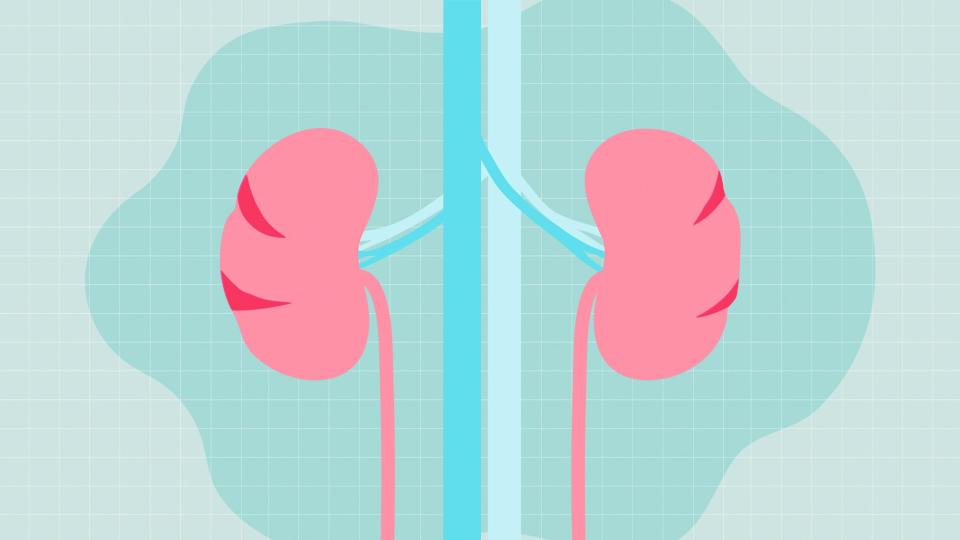4 Foods That Can Help Protect Your Kidneys
For all of the hard work they do—filtering out waste, regulating blood pressure, converting vitamin D into its usable form—your kidneys might not get the love they deserve. An estimated 37 million Americans have chronic kidney disease (CKD), a condition that prevents the organs from functioning properly and can lead to heart disease, stroke and early death. And 9 in 10 affected people don't know they have it. (Your doctor can test to check your status.) Diabetes, high blood pressure and age all increase your risk for CKD. But there are some simple ways to lower your odds of the disease or slow its progression, says Juan Jesus Carrero, Ph.D., who studies kidney disease at the Karolinska Institutet in Sweden. Here are four smart habits to adopt.

Getty Images / Liliia Kyrylenko
Consider Meatless Mondays
The average American consumes almost twice the amount of protein they need each day—and most of it comes from meat. Why that can be a problem: When your body digests protein, byproducts are created that need to be filtered out of the blood and eliminated by the kidneys. This process can stress already compromised kidneys, but there's evidence that eating too much protein may also harm healthy kidneys. A Johns Hopkins University study that followed people without kidney disease for 20-plus years found that those who ate the most meat—particularly red and processed meat—had a 23% higher risk of CKD than those who ate the least. If you're a big meat eater (or consume a lot of protein in general) cut back on a daily serving or two.
Boost Your Fiber Intake
When your gut metabolizes fiber, it creates beneficial compounds that improve insulin sensitivity and reduce inflammation—two factors important for kidney health, says Carrero. This process also reduces the production of toxins that are damaging to kidneys, he adds. In fact, a study published in the British Journal of Nutrition found that for every 5 grams of fiber people reported eating each day (the amount in 1/3 cup of cooked black beans or about 1⁄2 cup of raspberries), their risk of developing CKD dropped by 11%.
Cut Down on Soda
In a study published in the Clinical Journal of the American Society of Nephrology, every additional weekly serving of sugar-sweetened beverages like sodas and fruit drinks (not 100% juice) was linked with an 18% increased risk of CKD. Excess sugar ups your blood glucose level and can eventually damage the blood vessels in your kidneys, explains Carrero. Plus, many sugary drinks, particularly colas, contain high amounts of the mineral phosphorus, which has also been associated with kidney damage. If you need a little sweetness in your glass, try water with some sliced fresh fruit.
Pass on the Salt
Researchers in Japan found that people who ate the most salt—about 4,500 mg of sodium per day, nearly twice the American Heart Association's recommended limit—had a 29% increased risk of developing impaired kidney function. (The average American consumes 3,400 mg a day.) Excess salt intake may damage the kidneys in several ways, including raising blood volume and pressure in the kidneys and taxing the nephrons— microscopic structures that filter your blood, remove waste and control fluid concentrations. Over time, this can damage how the nephrons function. So read food labels and watch your overall sodium intake, especially when it comes to processed items like store-bought bread, soups and deli meats. They're the most common culprits in high-salt diets.

